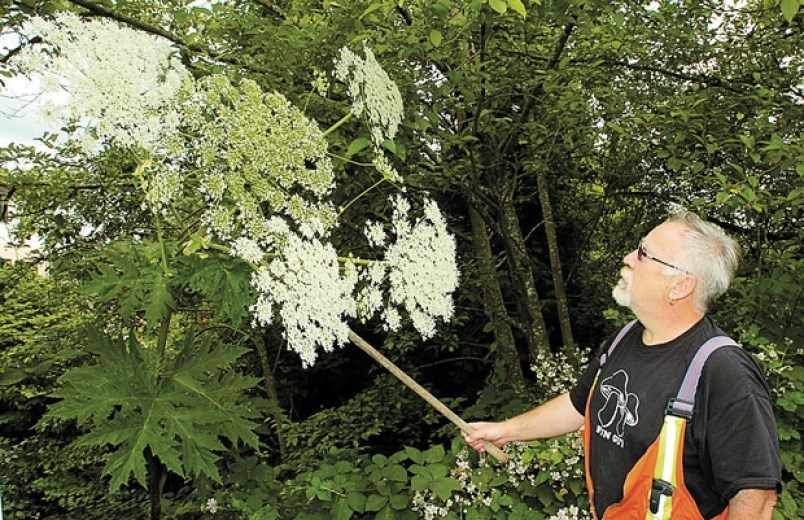The city of Coquitlam is looking to residents to assist in its battle against invasive plant species.
Giant hogweed is of particular concern due to its poisonous toxins that can burn skin, but other plants, like English Ivy, Japanese Knotweed, Periwinkle, Morning Glory and Yellow Lamium are being targeted by municipal staff.
Invasive species “can take over the natural environment, pushing out native plants and reducing and degrading habitat for fish, birds and other wildlife,” the city said in a press release. “Because these plants grow aggressively, adapt to different situations and are persistent in their spread, they can be expensive to control and eradicate.”
May is Invasive Species Awareness month and residents can do their part by learning to identify common invasive plants and removing them from their property.
A list of invasive plants can be found at coquitlam.ca/badseed along with information about how to volunteer to participate in a local weed pull event.
Residents can also help by:
• containing or removing invasive plants on their property to prevent them from spreading;
• never dumping garden waste or hanging baskets into parks or natural areas;
• disposing of invasive plant materials in the green cart, with the exception of giant hogweed, which can cause burns (best to call a professional for hogweed removal);
• cleaning off boots and shoes to get rid of hitchhiking weed seeds to prevent these species invading a new area;
• and volunteering to participate in a local weed-pulling event and helping remove invasive plants from a Coquitlam parks.
Residents should be aware of Coquitlam’s pesticide use regulations before using products to eliminate invasive plants.
The prevalence of Giant Hogweed has decreased significantly, with more than 40 cases since 2006 being treated and monitored with no signs of reoccurrence.



